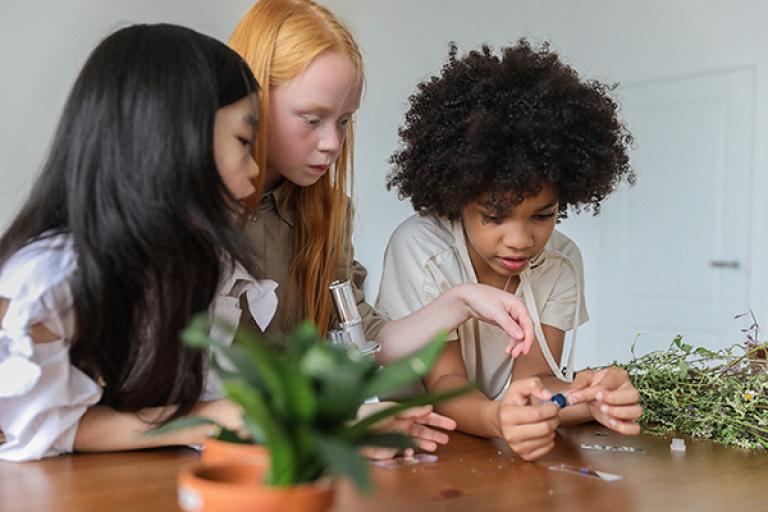Learning sciences postbaccalaureate certificate
Shape your teaching and research through better understanding of how people learn
As a student in our learning sciences certificate program, you’ll study learning theories, methodologies, designs, and evidence-based practices central to teaching and conducting research that supports the learning process. You’ll take courses in educational psychology, curriculum and instruction, computer science, and broader areas of education and human development. Throughout your coursework, you’ll explore how individuals learn and develop across educational, social, cultural, and technological contexts. This understanding will help you inform effective and equitable educational research, instruction, and policies.

Three children learn science at home.

What is the learning sciences?
The learning sciences: an interdisciplinary and global community of educational researchers dedicated to investigating and facilitating learning in real-world settings.
Learning scientists partner closely with teachers to develop, implement, and evaluate learning supports designed to address problems in education. By studying both the outcomes and process of these designs, learning scientists attend to what works for students, while contributing to learning theory.
The learning sciences community is increasingly committed to uncovering and tackling power and privilege in learning environments, with implications for persistent inequities in our society’s approach to fostering learning for all. Emerging from the disciplines of educational psychology, cognitive science, ethnography, sociology, and conversation analysis, learning scientists are applied researchers who embrace the complexity and heterogeneity of students, teachers, and the learning process.
Careers
This certificate is ideal for current University of Minnesota graduate students or anyone with a bachelor’s degree looking to gain better understanding of the learning sciences, including:
- current or future teachers
- graduate students pursuing research in education and/or psychology
- policy makers
- educational technology developers
- school leaders
- user experience researchers
- public health professionals
- coaches, community organizers
- others interested in rethinking their approach to help those they work with learn and grow
Faculty
David DeLiema
Program coordinator, psychological foundations of education
Assistant professor
Panayiota (Pani) Kendeou
Distinguished McKnight University Professor, Guy Bond Chair in Reading
Martin Van Boekel
Lecturer
Keisha Varma
Associate vice provost, Office of Equity and Diversity
Contact
David DeLiema
Assistant professor